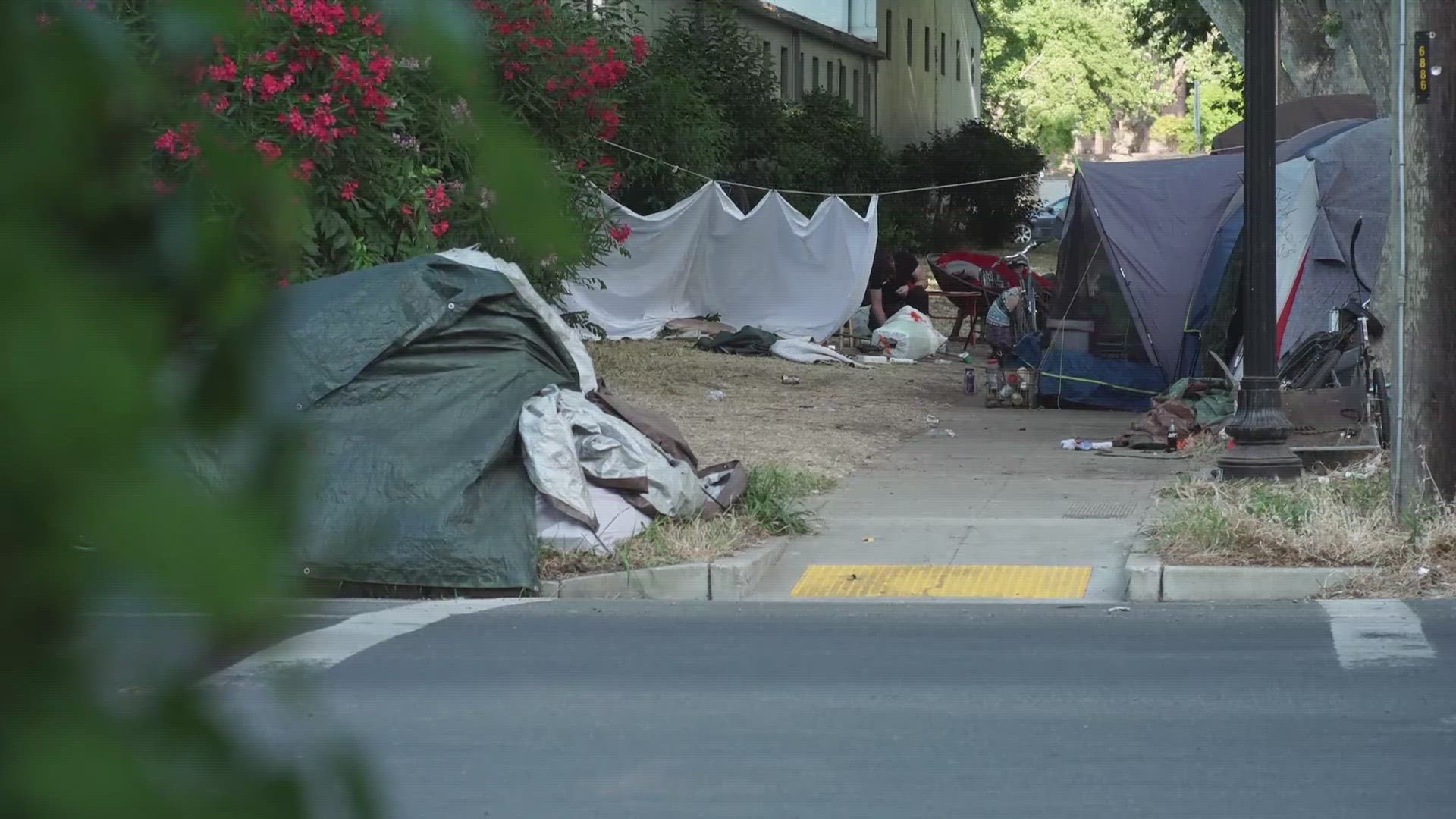SACRAMENTO, Calif. — Ever get the sense you’ve been sold a false bill of goods? That’s how some Sacramentans are feeling about Measure O, which more than 70,000 people approved in the November elections, garnering 52% of the vote.
Back then, people in favor of the ordinance said it will help connect unhoused people with services and move them into shelters to make for safer, cleaner streets.
However, some people are finding a newly debuted part of the measure is shockingly ineffective.
A much-anticipated part of Measure O just went into effect Wednesday. It’s a form that allows Sacramento residents to report unlawful camping on public property and formally demand the city do something about it. Specifically, Measure O says, residents will be “authorized to commence proceedings to require the city to abate the violations.”
The city calls this enforcement tool the “notice and demand process.”
The city is required to respond to these reports within 20 days, according to Measure O.
The city manager’s office, however, is saying the city has thrown enough money at the measure and their job is done.
As the Measure O FAQ page explains, “the city has allocated more than the maximum $5 million required to fund the requirements of the ESEA in the FY2023/24 budget… [Therefore, the city] has met its financial obligations for fiscal year 2023/24 and is not required to fund additional services, such as the hiring of a hearing examiner and other components of the notice and demand process.”
This isn't good enough of an explanation for those who supported the measure last year.
"Outrage shouldn't be the right word, even. We are so mad,” said Josh Wood, who helped craft Measure O and sell it to the public.
He’s CEO of the Sacramento Region Business Association and says the city’s determination that it doesn’t have to fully implement the new reporting system is flat out wrong.
“They are standing on thin legal ground, because they can't just point and say they fulfill their obligation when people are dying in Sacramento and our streets look like a dystopian movie,” said Wood. “Its obligation is fulfilled when our streets are safe and clean.”
For its part, the city says that in addition to state dollars, it’s spending $16 million from its own general fund “to meet the obligations of Measure O, including creating and maintaining emergency shelter spaces, performing outreach to persons experiencing homelessness and developing a coordinated access system.”
That doesn’t, however, include acting on residents’ “notice and demand” reports.
“The brand of Sacramento is becoming the capital of homelessness, and it's happening because they're unwilling to enforce,” said Wood.
John Morales experienced this non-enforcement firsthand. He lives in East Sacramento’s McKinley Village and said he’s sick of the problems that come with unlawful encampments in his neighborhood.
“There are dozens of needles that are close by where the children play,” said Morales. “There's also excrement, and people use the streets as a restroom.”
When the notice and demand form went live Wednesday, he said he “went online, immediately. I filed those three complaints. And half an hour later, I got a response from the city, saying that they have already spent the maximum amount to enforce Measure O and therefore they're not going to hire even a hearing examiner to take a look at what my complaint was.”
When a Sacramento resident submits that form, the city says it will get routed to the Department of Community Response, which deploys social workers and outreach specialists. That’s very different than what Measure O lays out.
Measure O includes an appeals process and a hearing examiner. If the city manager refuses or fails to fix the violation, it says the resident can appeal that, which then would go to a hearing examiner. However, that position currently sits vacant and the city is saying it doesn’t have to hire for that role or enforce Measure O because it has spent enough money and says that fulfills its obligation.
Despite all this, Wood asks residents to still report unlawful encampments.
“Go online, fill out the form. We still want you to hold the city accountable by turning in the form, asking them to clean up the homeless sites in front of you,” he said. “We're going to hold them accountable, no matter what.”
At noon on Tuesday, Sacramento City Councilmembers will participate in a 'Homeless Workshop,' something they say has been in the works for about a month. Members of the public will be able to submit comments. More information on that meeting is HERE and HERE.



















